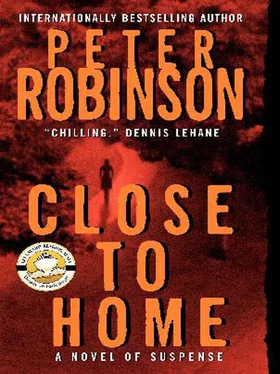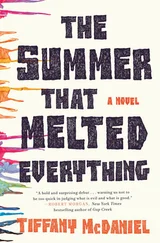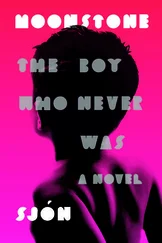“Who, sir?”
“His wife.”
“Not the most reliable of alibis, is it?”
“She’d hardly give him an alibi for doing in her own son, now, would she? Tell me even you aren’t so twisted as to think Mrs. Marshall was involved.”
“We don’t know, sir, do we?” But Michelle remembered Mrs. Marshall, her sincerity and dignity, the need to bury her son after all these years. Certainly it was possible she was lying. Some criminals are very good actors. But Michelle didn’t think so. And she wouldn’t be getting any answers out of Bill Marshall. “Did the Marshalls own a car?”
“Yes, they did. But don’t expect me to remember the make and number. Look, Bill Marshall might have been a bit of a Jack-the-Lad, but he wasn’t a child molester.”
“How do you know that was the motive behind Graham’s abduction?”
“Have some brains, woman. Why else does a fourteen-year-old boy go missing without a trace? If you ask me, I’d still say he might have been one of Brady and Hindley’s victims, though we could never prove it.”
“But it’s way out of their area. A geographical profiler-”
“More benefits of a university education. Profilers? Don’t make me laugh. I’ve had enough of this. It’s about time you stopped nosing about down here and got back on the bloody job.” And he turned and stalked out.
Michelle noticed that her hand was shaking when he left, and she felt her breath held tight in her chest. She didn’t like confrontation with authority; she had always respected her bosses and the police hierarchy in general; an organization like the police couldn’t run efficiently without a quasi-military structure, she believed, orders given and obeyed, sometimes without question, if it came right down to it. But Shaw’s rage seemed out of proportion to the situation.
She got up and returned the files to their boxes and gathered together her notes. It was well after lunchtime and time for some fresh air, anyway. Perhaps she would make a few phone calls, find someone who’d been on the job during the Kray era and head down to London the next day.
Back in her office, she found a message slip on her desk informing her that Dr. Cooper had rung and wanted to know if she would drop by the mortuary sometime that afternoon. No time like the present, she thought, telling DC Collins where she was going and heading out to her car.
The search of Luke’s room didn’t reveal much except a cassette tape marked “Songs from a Black Room,” which Banks, with Robin’s permission, slipped in his pocket to listen to later. Luke’s desktop computer contained nothing of interest. There was hardly any e-mail, which was only to be expected, and most of the Web sites he visited were connected with music. He also did a fair bit of online purchasing, mostly CDs, also to be expected from someone living in so remote a spot.
Banks was surprised at the range of Luke’s musical tastes. There was the usual stuff, of course, the CDs Annie had told him about, but also among the grunge, metal, hip-hop and gothic, he found other oddities, such as Britten’s setting of Rimbaud’s Les Illuminations and Miles Davis’s In a Silent Way . There were also several indie CDs, including, Banks was thrilled to see, his son Brian’s band’s first recording, Blue Rain . Not your usual listening for a fifteen-year-old. But Banks was coming to believe that Luke Armitage had been far from a typical fifteen-year-old.
He had also read some of the stories and poems Annie had collected from her previous visit, and in his humble opinion they showed real promise. They didn’t tell him anything about what might have happened to Luke, or his feelings about his father or stepfather, but they revealed a young mind preoccupied with death, war, global destruction and social alienation.
Unlike Annie, Banks wasn’t surprised by the room’s decor. Brian hadn’t painted his room black, but he had stuck posters on the walls and surrounded himself with his favorite music. And the guitar, of course, always the guitar. Annie had no children, so Banks could imagine how the black room would seem more outlandish to her. The only thing that disturbed him was Luke’s apparent obsession with dead rock stars, and with the absence of anything to do with his famous father, Neil Byrd. Something was definitely out of kilter there.
Brian had gone on to make a career of music, and now his band was on the verge of recording its first CD for a major label. After getting over the initial shock that Brian wasn’t going to follow any safe paths in life, Banks had come to feel very proud of him, a leap of faith that his own parents hadn’t seemed able to make yet. Banks wondered if Luke had been any good. Maybe the tape would tell him. From what Annie had told him, and from his own first impressions, he doubted that Martin Armitage would have been thrilled by any signs of musical ability in his stepson; physical fitness and sports seemed to be his measures of success.
Josie and Calvin Batty lived in their own small apartment upstairs at the far eastern end of Swainsdale House. There, they had a sitting room, bedroom and a small kitchen, in addition to a WC and bathroom with a Power-Shower, all modernized by the Armitages, Josie told them as they stood with her in the kitchen while she boiled the kettle for tea. The whole place was brightly decorated in light colors, creams and pale blues, and made the best of the available light.
Josie looked as if she could be quite an attractive young woman if she made the effort, Banks thought. But as it was, her hair seemed lifeless and ill-cut, her clothes rather plain, shapeless and old-fashioned, and her complexion pale and dry. Her husband was short and thickset with dark, gypsyish coloring and heavy eyebrows that met in the middle.
“What exactly are your duties here?” Banks asked the two of them when they were settled in the living room opposite an enormous TV-and-VCR combination with a tray of tea and chocolate digestives in front of them.
“General, really. I do most of the washing, ironing, cleaning and cooking. Calvin does odd jobs, takes care of the cars and any heavy work, building repairs, garden, that sort of thing.”
“I imagine there must be a lot of that sort of thing,” Banks said, glancing at Calvin. “A big old house like this.”
“Aye,” Calvin grunted, dunking a biscuit in his tea.
“What about Luke?”
“What about him?” asked Josie.
“Did any of your duties involve taking care of him?”
“Calvin’d give him a lift to school sometimes, or bring him back if he happened to be in town. I’d make sure he was well fed if Sir and Madam had to go away for a few days.”
“Did they do that often?”
“Not often, no.”
“When was the last time he was left alone here?”
“Last month. They both went down to London for some fancy gala charity do.”
“What did Luke do when he was left alone in the house?”
“We didn’t spy on him,” said Calvin, “if that’s what you’re getting at.”
“Not at all,” said Banks. “But did you ever hear anything? TV? Stereo? Did he ever have his friends over? That sort of thing.”
“Music were loud enough, but he didn’t have no friends to ask over, did he?” said Calvin.
“You know that’s not true,” said his wife.
“So he did entertain friends?”
“I didn’t say that.”
“Did he, Mrs. Batty?”
“Not here.”
Banks took a deep breath. “Where, then?”
She hugged her gray cardie closer to her. “I shouldn’t be telling tales out of school.”
Annie leaned forward and spoke for the first time. “Mrs. Batty, this is a murder investigation. We need your help. We’re in the dark here. If you can help throw any light at all on what happened to Luke, please do so. This is way beyond telling tales or keeping promises.”
Читать дальше












